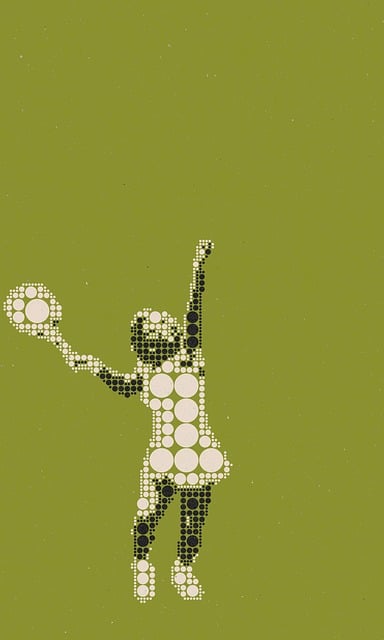Kratom (Mitragyna speciosa), a Southeast Asian tree, has gained popularity in addiction recovery due to its active compounds interacting with opioid receptors. Maeng Da, a Thai strain, offers unique benefits like managing withdrawal symptoms and reducing cravings through its chemical composition. Red, Green, and White varieties provide distinct effects for restlessness relief, energy, and balance. While kratom is an adjunctive tool for anxiety and depression during recovery, long-term effects require further study. Correct maeng da pronunciation ("mayng dah") is essential when exploring this natural remedy alongside traditional therapy for safe, effective addiction treatment.
“Kratom, derived from the Southeast Asian plant Mitragyna speciosa, has emerged as a potential ally in the fight against addiction. This natural herb, especially its renowned strain Maeng Da, offers unique benefits for individuals seeking recovery.
In this comprehensive guide, we’ll explore how understanding Kratom and its correct pronunciation (may-ng da) can be crucial in addiction treatment. We’ll delve into the various strains, focusing on Maeng Da’s benefits during withdrawal, and discuss its role in a holistic treatment plan.”
- Understanding Kratom and Its Potential Role in Addiction Recovery
- Maeng Da Kratom: Pronunciation, Varieties, and Benefits for Withdrawal
- Integrating Kratom into a Holistic Addiction Treatment Plan
Understanding Kratom and Its Potential Role in Addiction Recovery
Kratom, scientifically known as Mitragyna speciosa, is a tropical tree native to Southeast Asia. Its leaves contain unique alkaloids that have gained attention for their potential therapeutic effects, including in addiction recovery. One of the most well-known strains is Maeng Da, with its distinctive pronunciation and robust properties. The plant has been used traditionally for centuries, but modern research is uncovering its chemical composition and exploring its benefits in managing withdrawal symptoms and cravings.
Kratom’s active compounds interact with opioid receptors in the brain, offering a natural alternative to prescription medications often used in addiction treatment. It can provide relief from anxiety, depression, and pain, which are common challenges during recovery. However, it’s crucial to approach kratom as a potential adjunctive tool rather than a standalone solution, as individual responses may vary, and further research is needed to fully understand its long-term effects.
Maeng Da Kratom: Pronunciation, Varieties, and Benefits for Withdrawal
Maeng Da Kratom is a highly potent strain known for its unique benefits in managing addiction withdrawal symptoms. Pronounced as “Maeng Dah,” this Thai term translates to “powerful” or “high quality.” The plant’s scientific name, Mitragyna speciosa, further emphasizes its strength and effectiveness. This kratom variety has gained popularity due to its ability to provide intense relief from opioid cravings and anxiety during the recovery process.
There are several varieties of Maeng Da, each with slightly different effects. These include Red, Green, and White Maeng Da, each offering specific advantages for users. Red Maeng Da is renowned for its calming and pain-relieving properties, making it ideal for addressing withdrawal-related restlessness. Green Maeng Da, on the other hand, is known for its energizing and mood-boosting effects, which can aid in maintaining focus and motivation during recovery. White Maeng Da sits between these two, offering a balance of relaxation and stimulation.
Integrating Kratom into a Holistic Addiction Treatment Plan
Kratom, a natural herb with a unique history, has gained attention as a potential tool in addiction treatment and recovery. When integrated into a comprehensive holistic plan, it offers a promising approach to managing withdrawal symptoms and preventing relapse. This ancient plant, scientifically known as Mitragyna speciosa, comes in various forms, with Maeng Da being a popular strain renowned for its potent effects. The correct pronunciation of Maeng Da, with its distinct emphasis on the ‘a’ sound, is “mayng dah,” reflecting the cultural heritage and precision required in herbal medicine.
A holistic treatment plan combines traditional therapy, counseling, and alternative practices to address the physical and psychological aspects of addiction. Kratom can be a valuable addition here, providing relief from anxiety and depression often associated with withdrawal. Its gentle euphoric effects may help individuals stay focused on their recovery journey while mitigating intense cravings. However, it should be carefully monitored and used in conjunction with other therapeutic interventions for optimal results, ensuring a safe and effective path to long-term recovery.
Kratom, particularly Maeng Da variety, has shown promise as a natural aid in addiction recovery. Its unique properties can effectively manage withdrawal symptoms and cravings, making it a valuable tool in a holistic treatment plan. Understanding the correct pronunciation of ‘Maeng Da’ (mayng dah) and exploring its diverse varieties is the first step towards leveraging this ancient herb for modern challenges. Further research and professional guidance are essential to ensure safe and effective integration into addiction treatment regimens.














